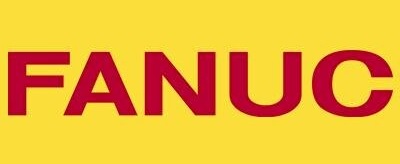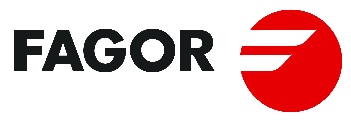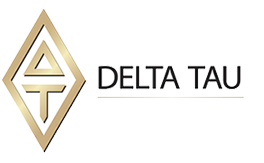Boring Mill Rebuild

Boring is the process of enlarging a hole that has already been drilled or cast by means of a boring head or cutting tool. Several Machines can perform this function depending on the size of the part. Boring Mills are used as the primary function of boring and usually on larger parts ranging in size from 10-50ft. There are Vertical Boring Mills and Horizontal Boring Mills.
Boring Mill Application
Boring Mills are used in all industries specifically where tight hole tolerances are needed for part and machine accuracy.
Every Machine that TMI remanufactures follows a checklist point system below that ensures every part of the machine has been evaluated.
-
Horizontal Boring Mills
Horizontal Boring mills are where the part sits on a table while the boring bar rotates around a horizontal axis. TMI can enhance the design and performance by incorporating new linear guide systems.
Read More -
Vertical Boring Mills
Vertical Boring mills are where the part rotates around a vertical axis while boring bar/head moves linearly.
Read More
Disassembly and Inspection
A machine is completely disassembled to check all components and bare castings. Each component is examined for damage or excessive wear. Components are replaced with new parts where necessary or cleaned and reinstalled unless otherwise specified in the scope of work. All parts reutilized, whether repaired or satisfactory without repair, shall be in a condition to assure original part function and fit, as well as original machine capabilities, performance, accuracy and life expectancy. Parts shall not be modified to the extent that OEM replacements cannot be utilized.
All machines will have an engineering model completed for the rebuild/remanufacture completes with a bill of material and spares list of parts that have been replaced. All machine rebuilds/remanufacture goes through a quality inspection process and start up test phase before leaving the facility.
The following Is a Machine Checklist of what Will Be Inspected, Repaired and Replaced in Your Machine. In a Remanufacture, the following will be upgraded with the standards of today’s technology as well as any custom add on features the customer is requiring.
- Castings: Inspection of any cracked major structural casting such as column, bed, saddle, table and spindle head will be checked. When determined necessary to repair or replace a cracked major structural casting, the vendor shall advise the customer of the function of the cracked major structural casting, the effect of the crack and its repair on the structural strength, alignment and function of the machine, the probability of successfully repairing the cracked casting, the cost for a new casting, if available, and the lead time for replacing or repairing the casting. The vendor shall be responsible for replacement or repair of all other non-structural cracked castings.
- Ways and Gibs: All precision surfaces shall be refinished to assure required alignment accuracy, performance capabilities, lubrication properties and life expectancy of the machine. All nicks, gouges, scores, scratches or other defects shall be removed.
- Bearings and Bearing Bores: Worn bearing bores in castings, or similar bored holes, shall be corrected by: boring oversize, installing a steel sleeve, and machining to restore original bore size and alignment. Unless otherwise specified, all bearings, including bushings and sleeve type bearings, shall be replaced with bearings equal to or better than the type and precision class specified by the manufacturer.
- Shafts: Defective shafts shall be repaired or replaced with shafts equal to or better than the original shafts. Non-defective shafts (those which are only nicked or scratched and the defect are only in appearance) may be dressed or polished to improve appearance and reutilized. Worn or broken splines will be replaced.
- Gears: All gears shall be 100 percent inspected visually. All gears found to be defective shall be replaced with new gears equal to or better than the original gears. All installed gears, whether replaced or reutilized, shall be in a condition to assure proper machine operation.
- Seals and Gaskets: All seals and gaskets shall be replaced with new seals and gaskets.
- Dials and Scales: All dials, scales, data plates and other markings which are scored, damaged, discolored, or inoperative shall be reworked or replaced. Gages shall be replaced and certified to be accurate in accordance with the manufacturer's rating.
- Brakes and Clutches: All brakes and clutches shall be removed from the machine and replaced with new items of a type and quality equal to or better than the original brakes and clutches.
- Belts: All belts shall be removed from the machine and replaced with new belts of a type and quality equal to or better than the original belts.
- Way Wipers: All way wipers shall be removed and replaced with the latest wiper technology. Materials should be impervious to oils and coolants.
- Gearboxes: Gearboxes shall be disassembled, cleaned and inspected. All defective components shall be rebuilt or replaced.
- Way Covers: Existing damaged metal way covers shall be repaired. When the vendor has determined that replacement is necessary, the additional costs shall be borne by the customer. The vendor shall advise the customer of additional costs and any delays in the project due to procurement. All non-metallic way covers shall be replaced.
- Cleaning, Treating and Painting: Upon completion of the rebuild/remanufacture, all painted areas shall present a new machine finish and appearance with normal luster and an absence of drips, sags and overspray. Bare metal surfaces that do not require painting shall be cleaned and be free of rust, corrosion and other contaminants and must be coated with preservative. If there are specific customer requirements, they shall be identified.
- Lubrication System: The existing lubrication system shall be rebuilt or replaced. All lubrication pump(s) shall be disassembled and rebuilt or replaced with pump(s) of the same or greater rating and performance capability. All flexible lines and filter elements shall be replaced. All lubricant reservoirs shall be thoroughly cleaned and flushed. All lubricant passages, piping, tubing and fittings shall be thoroughly cleaned and flushed. All damaged or otherwise defective lines and fittings shall be replaced. All filters having screens and scrapers shall be replaced with new style filtration. All connections and orifices that regulate oil flow to various components shall be properly adjusted.
- Hydraulic System: The hydraulic system (components) shall be disassembled, cleaned, flushed and rebuilt or replaced as appropriate. All solenoid valves, back-up rings, O-rings, flexible lines and fittings and filter elements shall be replaced. All damaged or defective lines and fittings shall be replaced.
- Pneumatic System: The pneumatic system shall be disassembled, flushed, cleaned and inspected for worn or damaged parts. All worn or damaged parts shall be replaced with the latest available technology. All flexible hoses and defective piping shall be replaced. The air regulators shall be reassembled using new diaphragms. Gauges shall be replaced. Each cylinder shall be disassembled and inspected for worn, scored or otherwise defective parts and replaced as necessary.
- Coolant System: The coolant pump shall be disassembled, cleaned and rebuilt or replaced. All coolant system fluid reservoirs and passages shall be thoroughly flushed and cleaned. All rigid coolant lines shall be cleaned and flushed or replaced when damaged or defective. All flexible coolant lines, shut-off valves, nozzles and filters shall be replaced.
All Machines Will Have an Engineering Model Completed for the Rebuild/Remanufacture completes with a bill of material and spares list of parts that have been replaced. All machine Rebuilds/Remanufacture goes through a Quality Inspection Process and Start up Test Phase before leaving the facility.
Click here to submit a Request for Quote
or call us today at (254) 412-0512







